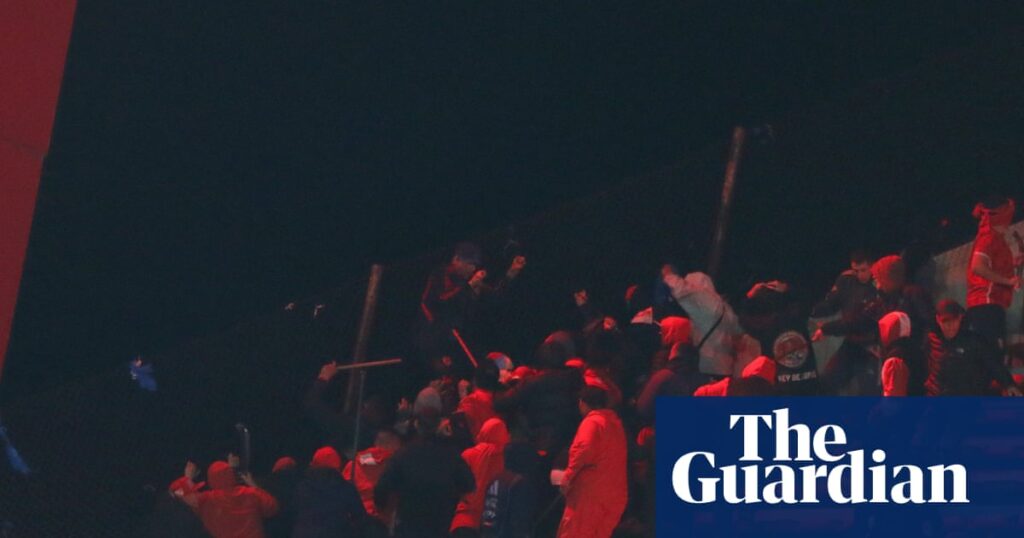Violent clashes between fans at Wednesday’s Copa Sudamericana match between Independiente and Universidad de Chile in Buenos Aires resulted in the second leg of the last 16 tie being abandoned.
Players left the field in the second half as security concerns grew at the Estadio Libertadores de América. The tie was locked at 1-1 when the match was suspended, with the Chilean side leading 2-1 on aggregate.
South American football’s governing body (Conmebol) said the match had been cancelled due to “the lack of security guarantees from the local club and local security authorities”.
It added that the case would be referred to its judicial bodies and that information regarding the events would be sent to the disciplinary committee.
Videos circulated on social media showed several violent clashes in the stands, including one where a fan fell from the top of the stand to the ground below.
Argentine media reported that more than 300 Universidad de Chile fans were arrested after the clashes. Several supporters from both clubs also sustained injuries, media reports said.
Chile President Gabriel Boric issued a statement on social media condemning the violence.
“What happened … is wrong in so many ways, from the violence in the stands to the obvious irresponsibility in the organization,” he wrote. “The justice system must determine who is responsible. Now our priority as a government is to find out the condition of our compatriots who have been attacked, ensure they receive immediate medical attention, and that those who have been detained have their rights respected.”
Boric said he had instructed the Chilean ambassador to visit fans being held at police stations and treated in hospitals in the Argentine capital.
In April, a Chilean derby between Universidad de Chile and Colo Colo was postponed after two young fans were killed in a crush at a Copa Libertadores match.
Violence is common at stadiums in Argentina and pressure group Salvemos Al Futbol (Save Football) has catalogued more than 350 football-related deaths in the country over the last century.

